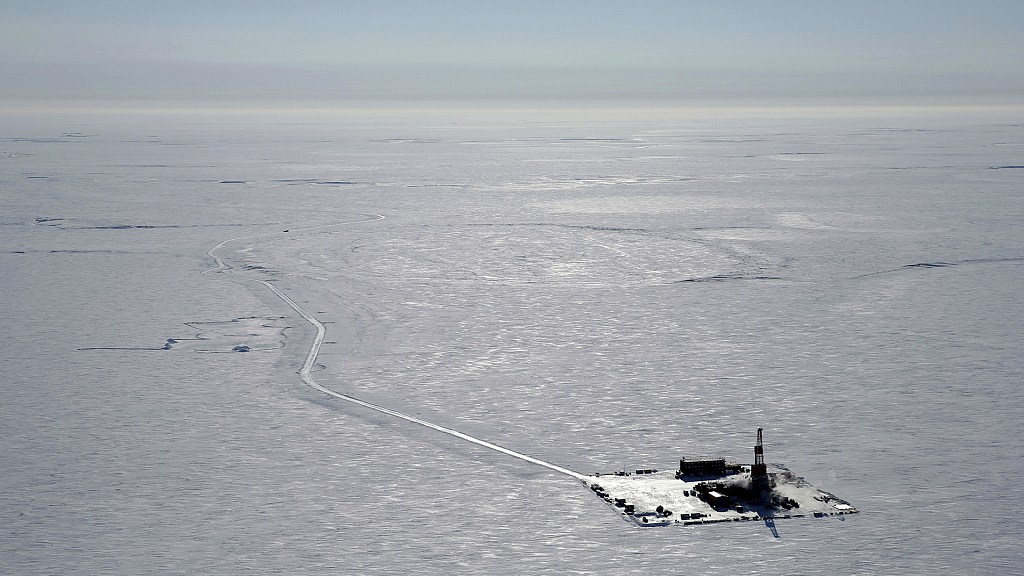The Biden administration's approval of a massive oil development in northern Alaska commits the U.S. to yet another decades-long crude project even as scientists urgently warn that only a halt to more fossil fuel emissions can stem climate change.
ConocoPhillips' Willow project would produce 180,000 barrels of oil a day at its peak, and using that crude would result in at least 263 million tons (239 million metric tons) of greenhouse gas emissions over 30 years.

This 2019 aerial photo provided by ConocoPhillips shows an exploratory drilling camp at the proposed site of the Willow oil project on Alaska's North Slope. /CFP
This 2019 aerial photo provided by ConocoPhillips shows an exploratory drilling camp at the proposed site of the Willow oil project on Alaska's North Slope. /CFP
Demand for oil isn't dropping as the planet heats, and a bitter political dispute over the project, which was approved Monday, has underscored the Democratic administration's struggle to balance economic pressures against pledges to curb fossil fuels. The proposal in the remote region north of the Arctic Circle also highlights the paradox facing the U.S. and other nations: The world's transition to clean energy lags behind the reality of an economy still largely driven by oil consumption.
"At some point, we have to leave oil and gas and coal in the ground. And for me, that some point is now – particularly in a vulnerable ecosystem like the Arctic," said Rob Jackson, a climate scientist at Stanford University.
Attorneys representing environmentalists and an Alaska Native group filed a lawsuit Tuesday asking a federal judge to block Willow's approval. The Sovereign Iñupiat for a Living Arctic, Sierra Club and other groups said Interior officials ignored the fact that every ton of greenhouse gasses emitted by the project would contribute to sea ice melt, which endangers polar bears and Alaskan villages.
The International Energy Agency has said new drilling investments must be halted if nations, including the U.S., hope to reach their 2050 goal of net-zero emissions, meaning only as much planet-warming gas is released into the atmosphere as can be absorbed.
The energy sector accounts for 90 percent of carbon dioxide emissions worldwide and three-quarters of the total human-made greenhouse gases.
(If you want to contribute and have specific expertise, please contact us at nature@cgtn.com.)
Source(s): AP